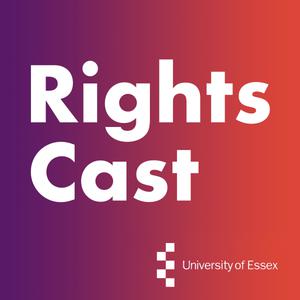
RightsCast
RightsCast
RightsCast brings you discussion on a wide range of contemporary and enduring human rights issues from the University of Essex Human Rights Centre. Bringing together diverse voices from all over the world, we apply a human rights lens to better understand current events, to discuss key issues, and to explore how to achieve social change. From grassroots movements to major international affairs, join us each week as we talk to the people behind the stories and seek to create a dialogue around the role of human rights in our daily lives. Human Rights Centre: https://bit.ly/2Wm2z3S
- 1 hour 13 secondsArts and Human Rights
What contribution can and does art and artists make to the human rights project? This episode brings together experts from the Essex human rights community to consider a relationship which is all-too often overlooked by the mainstream human rights community. The host, Dr Andrew Fagan is joined by Dr Gavin Grindon, Anastasiia Korabljova, and Professor Lars Waldorf.
28 May 2024, 10:05 am - 1 hour 15 minutesAI and Human Rights: Just Good Friends or Hostile Forces?
This week, leading experts on AI and human rights discuss the relationship between AI and human rights. Is AI bad for our rights? Should human rights supporters embrace AI? Dr Andrew Fagan is joined by Essex Law School and HRC colleagues Dr Antonio Coco, D Giulia Gentile and Dr Zhenbin Zuo
15 May 2024, 11:00 am - 59 minutes 59 secondsIn Conversation With Professor Paul Hunt
Host Dr Andrew Fagan discusses the current state of human rights with Essex professor of law and globally renowned human rights advocate, Paul Hunt. Does human rights have a future? If so, what is this likely to look like and what do we have to do now to support human rights?
1 May 2024, 9:01 am - 1 hour 6 minutesDefending the Right to Peaceful Protest in Dark Times
Standing up for your rights is becoming increasingly difficult in many countries. What rights do we have to peacefully protest and why are these rights under attack? Liberty UK's Sam Grant and Essex sociologist and HRC member, Dr Anna Di Ronco join our host Dr Andrew Fagan to consider this complex and all important topic.
21 April 2024, 8:13 am - 1 hour 28 minutesThe Future of Copyright in the age of AAI
In this podcast, you will listen to the book launch of Dr Aviv Gaon’s latest book: ‘The Future of Copyright in the Age of Artificial Intelligence’, in which Dr Gaon explores the fundamentals of copyright law and AI, suggesting new models for considering the future of authorship and basic concepts in copyright as we further move into a world where we see more AI generated content.
Discussants include Prof. Peter Menell from UC Berkeley (USA), Prof. Pina D’Agostino from Osgoode Hall Law School, York University (Canada), Prof. Stavroula Karapapa from the University of Essex, School of Law (UK), and Dr. Aviv Gaon from the Harry Radzyner Law School, Reichman University (Israel). The book launch was organized by Dr Eden Sarid from the University of Essex School of Law.
3 February 2022, 6:00 am - 1 hour 35 minutesProblematizing Law, Rights, and Childhood in Israel/Palestine
In this podcast, you will listen to the book launch of Dr Hedi Viterbo’s latest book: ‘Problematizing Law, Rights, and Childhood in Israel/Palestine’, in which Dr Viterbo radically challenges our picture of law, human rights, and childhood, both in and beyond the Israel/Palestine context. Commentators include Alexandra Cox, a Senior Lecturer at the University of Essex Department of Sociology; Maryam Jamshidi, an Assistant Professor of Law at the University of Florida Levin College of Law; and Yaël Ronen, Professor of Law at the Academic Center for Science and Law at Hod Hasharon, and the Minerva Center for Human Rights at The Hebrew University in Jerusalem. The book launch was organized by Dr Haim Abraham from the University of Essex School of Law and UCL Faculty of Laws, and Dr Eden Sarid from the University of Essex School of Law.
23 December 2021, 12:09 pm - 27 minutes 49 secondsLGBTQ+ Rights: LGBTQ+ Community in Italy
In the third episode of the LGBTQ+ Podcast, our guest, Cate Fantacci, discusses the public perception of LGBT+ people in Italy and how it is influenced by the Catholic Church.
Although Italy is a secularised country, the Catholic Church often expresses its opinion on political matters. Few Church officials affirm LGBT+ people. In 2003, the Congregation for the Doctrine of Faith stated that same-sex marriage would be inconsistent with Christian conscience. In 2013, the Church started to condemn the so-called ‘gender philosophy.’ More recently, in 2020, in debates regarding the bill on discrimination and hate crimes against LGBTQ+ people, religious actors talked about the bill as an attack on freedom of speech.
A lot of homophobia stems from media which provides Italian politicians with a platform to share their homophobic beliefs. For example, Giorgia Meloni, leader of a national-conservative party, stated, that she would rather not have a gay son. Mario Adinolfi, leader of a social-conservative party, described LGBT+ parenting as a criminal ideological abomination. Instead of deconstructing harmful beliefs, the mass media enforces derogatory stereotypes.
The most recent development regarding gay rights in Italy is the anti-discrimination bill that makes violence against LGBT+ people a hate crime. Nevertheless, the bill faces opposition from right-wing parties and the Italian Roman Catholic Church, who claim that the existing protections are strong enough.
LGBT+ rights groups in Italy: Arcigay, Arcilesbica, ARCO, Il Rainbow Center Napoli (in Naples), AGedO, Azione Gay e Lesbica (in Florence), Di' Gay Project (in Rome), Centro di Iniziativa Gay Milano (in Milan).
On a positive note, Cate recommends Brandi Carlile’s memoir ‘Broken Horses.’
If you wish to be involved in a future season of the LGBTQ+ Pride and the Law: A Podcast, please contact [email protected] for more information!
25 October 2021, 6:00 am - 40 minutes 6 secondsLGBTQ+ Rights: LGBTQ+ Community in Israel
Our second podcast is with Dr. Haim Abraham, a lecturer at the University of Essex. He gives us an informative discussion on surrogacy in relation to the LGBTQ+ community in Israel, educating us on the developments being made and the ones needed to ensure they have equal rights to surrogacy.
As the LGBTQ+ community in Israel grows so does their advocation of equal rights. Within Israel, the Embryo Carrying Agreement Act is how surrogacy is regulated. However, its requirements discriminate against the LGBTQ+ community, such as only allowing surrogacy to be available for married heterosexual couples.
In recent years, there have been achievements; the courts acknowledging LGBTQ+ relationships and recognizing that the law is discriminatory towards same-sex couples as seen in 2010 case of Arad-Pinkas (HCJ 1078/10 Arad-Pinkas v The Surrogacy Agreements Approval Committee) which led to a petition for law reform. Nonetheless, the courts argued that the law was proportionate due to the lack of research on its effect on familial structure regardless of the acceptance of surrogacy undertaken abroad. This led to the financial burden on Israel’s LGBTQ+ couples to undertake surrogacy abroad which costs more than $100,000 and thus discriminates against the LGBTQ+ community.
Ultra-Orthodox Jewish parties in the Knesset continue to advocate for a fully religious vision of Israel. These religious considerations caused a lack of political support for the LGBTQ+ movement and led to LGBTQ+ rights not seen as legitimate rights as they go against religious belief. This is evident under the Embryo Carrying Agreement Act which is how surrogacy is regulated in Israel. The Act includes legal requirements that discriminate against the LGBTQ+ community and shows the importance of religious attitudes, where particular attention was given to Jewish law. This can be seen in the requirements stated for surrogacy, in particular that the procedure is available for only married heterosexual couples as well as the requirement for the intended parents and surrogate to follow the same religion.
Additionally, homophobic attitudes are still present with the communities. Regardless of the enormous pressure for change since 2010, the lack of action shown by the government reveals the long road ahead for the LGBTQ+ community.
LGBTQ+ Organisations in Israel
- Tehila
- The Aguda (The Association for LGBTQ Equality in Israel)
- Iggy The Proud Youth Organisation (Israel’s national LGBTQ youth organization)
- Bat-Kol(the only NGO of LGBTQ women in Israel)
Extra Resources
- Dr Haim’s research paper on surrogacy in Israel can be found here
- Surrogacy in Israel Conference
If you wish to be involved in a future season of the LGBTQ+ Pride and the Law: A Podcast, please contact [email protected] for more information!
18 October 2021, 7:00 am - 45 minutes 16 secondsLGBTQ+ Rights: Asylum Seekers in the UK
In the first episode of the LGBTQ+ Podcast, our guest, Vinnosh Kumar, discusses the situation of LGBTQ+ asylum seekers in the UK.
Asylum claims based on sexual orientation and gender identity are systematically rejected both in the UK and Europe. The officials often expect the claimant to convince them that they are ‘truly’ gay or trans or other. One in three claimants is refused asylum because the officials did not believe their sexual orientation or gender identity. According to international human rights law, instead of asking whether the claimant is undoubtedly gay, the officials should ask whether they face a threat of prosecution in their country of origin based on the grounds of their sexuality. There is also a cultural and language barrier. Many languages are not conditioned to express non-heteronormative relationships and identities.
In the UK, the LGBTQ+ asylum seekers suffer consequences of hostile asylum policies, especially in regards to housing. 60 per cent of LGBTQ+ asylum seekers live with friends and partners in private rented accommodations or houses of multiple occupations. Those who interact with their landlords face indifference or discrimination.
Nevertheless, there have been some positive developments in the case law regarding the LGBTQ+ community in the UK. In Birmingham City Council v Afsar, the case discussed in this episode, the Court agreed that an interim injunction should be granted to restrain the anti-LGBT protests organised by parents of students of the local primary school.
SOGICA Project indicates that, according to international human rights law, instead of asking whether the claimant is undoubtedly gay, the officials should ask whether they face a threat of prosecution in their country of origin based on the grounds of their sexuality or gender identity. Moreover, Vinnosh mentions the case HJ and HT v Home Secretary, where the Court decided that the fact that the claimants would not face prosecution in their country provided they concealed their sexuality could not be an argument in favor of deportation.
Vinnosh also recommends the movie My Son is Gay.
Here are some organizations that help LGBTQ+ asylum seekers with links to their websites:
LGSMigrants (Lesbian and Gays Support the Migrants): http://www.lgsmigrants.com/do-you-need-help
UK Lesbian & Gay Immigration Group: https://uklgig.org.uk/
Stonewall UK: https://www.stonewall.org.uk/asylum
City of Sanctuary UK (provides a list of local groups that support the LGBT+ asylum seekers):
If you wish to be involved in a future season of the LGBTQ+ Pride and the Law: A Podcast, please contact [email protected] for more information!
11 October 2021, 8:11 am - 54 minutes 49 secondsCounter-Terrorism and Human Rights: Avoiding the Terrorist Trap (with Tom Parker)
Tom Parker, a counter-terrorism practitioner and former UN war crimes investigator, recently published a book called Avoiding the Terrorist Trap, in which he argues that counter-terrorism strategy grounded in respect for human rights is the only truly effective approach to defeating terrorism. In this episode, Tom joins Daragh Murray in a discussion exploring everything from why people engage in terrorism, to how existing counter-terrorism approaches can be counter-productive.
Tom Parker has worked as a European Union-sponsored adviser to the Office of the National Security Adviser (ONSA) in Baghdad, Iraq, prior to which he served as a Counter-Terrorism Strategist at the United Nations Counter-Terrorism Centre (UNCCT) and as the Adviser on Human Rights and Counter-Terrorism to the United Nations Counter-Terrorism Implementation Task Force (CTITF). He has also served as the Policy Director for Terrorism, Counter-terrorism and Human Rights for Amnesty International USA, as the Special Adviser on Transitional Justice to the Coalition Provisional Authority, as a war crimes investigator with the International Criminal Tribunal for the former Yugoslavia (ICTY) in both Bosnia and Kosovo, and as an Intelligence Officer in the British Security Service (MI5).
Tom’s book, Avoiding The Terrorist Trap: Why Respect For Human Rights Is The Key To Defeating Terrorism is available now.
30 July 2020, 12:00 pm - 28 minutes 4 secondsQualified Immunity: How Police Get Away with Murder (with Haim Abraham, Nimra Azmi, Joanna Schwartz and Jennifer Page)
The doctrine of qualified immunity protects government officials from being held personally liable for constitutional violations, and thus poses a significant challenge for individuals seeking compensation for abuses of public power in the US. In light of continuing police brutality against Black Lives Matter protesters, many are calling for the doctrine to be reformed or abolished.
In this episode, Dr Haim Abraham is joined by Nimra Azmi, Prof. Joanna Schwartz and Dr Jennifer Page to discuss how qualified immunity shields police officers from personal liability for wrongful use of force, and how other avenues of justice and reparations might be explored.
Nimra Azmi is a staff attorney at Muslim Advocates, where she she uses litigation and other tools of legal advocacy to protect American Muslim individuals and communities from discrimination and bigotry.
Joanna Schwartz is Professor of Law at UCLA School of Law. She teaches Civil Procedure and a variety of courses on police accountability and public interest lawyering. Professor Schwartz is a leading expert on police misconduct litigation in the US. Professor Schwartz additionally studies the dynamics of modern civil litigation. She is co-author, with Stephen Yeazell, of a leading casebook, Civil Procedure (10th Edition).
Dr Jennifer Page is a postdoctoral fellow at University of Zurich’s Department of Philosophy, where her research focuses on reparations and state accountability.
Dr. Haim Abraham is a Lecturer at the University of Essex School of Law. His research focuses on the liability of public bodies and officials and private law theory, and he teaches Tort Law, The Law of Obligations, and Contract Law. Dr. Abraham holds a Doctor of Juridical Science degree from the University of Toronto, a Master of Law degree from the University of Cambridge, and a Bachelor of Law degree combined with the Interdisciplinary Honours Program in the Humanities from The Hebrew University of Jerusalem, where he was on the editorial board of the Israel Law Review.
24 July 2020, 5:00 am - More Episodes? Get the App
Your feedback is valuable to us. Should you encounter any bugs, glitches, lack of functionality or other problems, please email us on [email protected] or join Moon.FM Telegram Group where you can talk directly to the dev team who are happy to answer any queries.
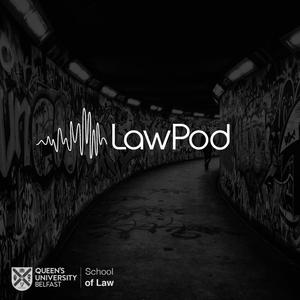 LawPod
LawPod
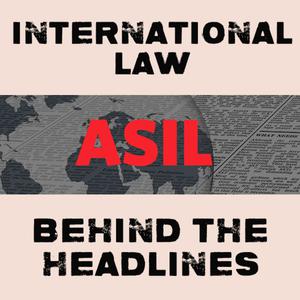 International Law Behind the Headlines
International Law Behind the Headlines
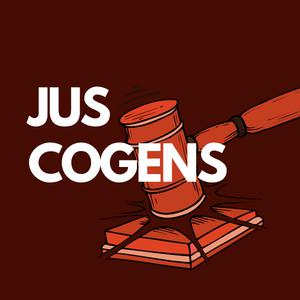 Jus Cogens - The International Law Podcast
Jus Cogens - The International Law Podcast
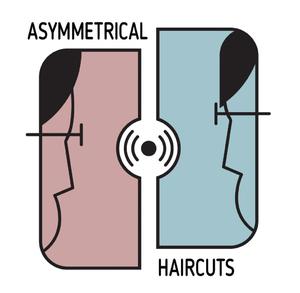 asymmetrical haircuts
asymmetrical haircuts
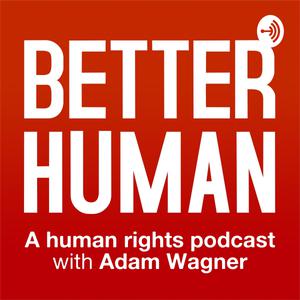 Better Human Podcast
Better Human Podcast
 EJIL: The Podcast!
EJIL: The Podcast!